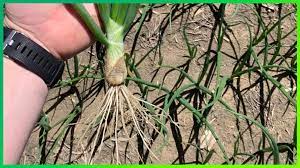Calcium is an essential nutrient for plant growth and development, and it plays a crucial role in the cultivation of onions. In this article, we will explore the importance of calcium for onion farming and how to ensure that your onion crop is receiving adequate calcium to maximize yield and quality.
Calcium is an essential macronutrient that is involved in many important physiological processes in plants, such as cell division, cell elongation, and cell wall synthesis. In onions, calcium deficiency can lead to a host of problems, including poor root development, stunted growth, and increased susceptibility to disease. A study conducted by the University of Wisconsin-Madison found that calcium application increased onion yield by up to 38%.
To ensure that your onion crop is receiving adequate calcium, it is essential to test your soil to determine its calcium content. If the soil is deficient in calcium, you can apply calcium-based fertilizers such as gypsum or lime to the soil. Foliar application of calcium is also effective in increasing calcium uptake by the plant, especially during periods of rapid growth.
In conclusion, calcium plays a critical role in the growth and development of onions, and it is essential for maximizing yield and quality. By ensuring that your onion crop is receiving adequate calcium, you can help prevent nutrient deficiencies, increase resistance to disease, and improve overall plant health.
#OnionFarming #CalciumNutrition #PlantHealth #SoilTesting #Fertilizers






























